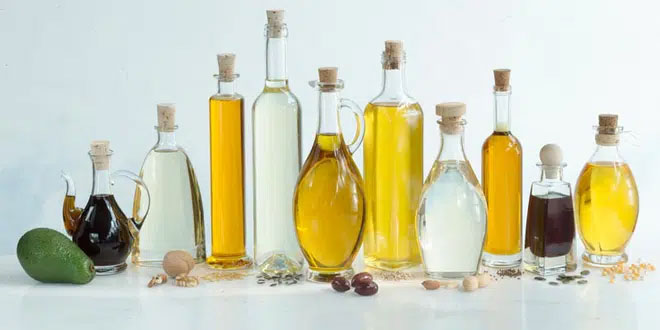Cooking oil is an essential food in every household. Cooking oil is considered an essential nutrient for the body, but it is not in excess. Excess fat has many negative health consequences.
Note when using cooking oil
How to eat the oil properly is still a question that preoccupies most people.
When the standard of living is improved, the cooking oil in the market has many types and many brands. From peanut oil, corn oil, soybean oil to olive oil. Lots of cooking oils. So when we eat oil, what should we be careful about?
What should you notice when eating oil?

1. Must have limits
Regardless of the type of oil, if you eat too much it will increase the risk of obesity and dyslipidemia. Should control the daily oil intake of adults to 25g-30g, about 2-3 scoops (full).
2. Should buy a small bottle of oil of many kinds
When buying cooking oil, you need to buy small packages of fats of different varieties, replace the use of interlacing in daily food processing, and add a variety of balanced unsaturated fatty acids.
Of course, you can also choose an oil blended from a variety of unsaturated fatty acids (as long as you pay attention to the “fat percentage” on the food label).
In addition, do not buy oil of unknown origin, go to large supermarket chains and buy often.
3. Choose a more premium oil
In general, cooking oil is also divided into different grades and grade categories. Many cooking oils have their own “quality grade”, and the grades are determined primarily by the color of the oil, the amount of insoluble impurities, and taste.
In general, premium grade oil is better than second grade oil, and special grade olive oil is better than premium grade olive oil.
4. Eat less of these oils
For lard, goat fat and beef fat and other oils such as palm oil, hydrogenated vegetable oil, coconut oil and reusable fats, it is recommended to eat little or no , depending on the actual situation.
5. “The baby” should also eat oil
The main sources of fat in a child’s diet are foods of animal origin and cooking oils.
Fat absorption plays an important role in the growth and development of infants and young children. The main sources of fat in a child’s diet are foods of animal origin and cooking oils, represented by milk.
After adding complementary foods for children over 6 months, first of all, it is necessary to ensure the diets based on milk and foods of animal origin, babies who consume mainly plant foods should add appropriate amounts of fat to their meals.
No matter what cooking oil you buy, everyone should be equipped with standard knowledge to be able to use fat properly. The choice of cooking oil should be reliable, scientific oil limited, healthy eating.


